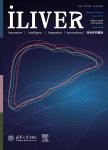Ascorbic acid ameliorates isoniazid-rifampicin-induced hepatocellular damage in rats
作者机构:Shri Ram Institute of Technology-PharmacyJabalpurIndia
出 版 物:《iLIVER》 (国际肝胆健康(英文))
年 卷 期:2022年第1卷第1期
页 面:72-77页
学科分类:1008[医学-中药学(可授医学、理学学位)] 1006[医学-中西医结合] 100602[医学-中西医结合临床] 10[医学]
主 题:Liver Toxicity Antitubercular Peroxidation Cytokines Ascorbic acid
摘 要:Background:Phyto-constituents are widely recognized for hepatoprotective *** acid is extensively studied for the radical scavenging *** objective of the present study was to evaluate the hepatoprotective effect of ascorbic acid against isoniazid and rifampicin-induced liver damage in ***:Wistar rats were used in the present ***-cellular damage was produced by the administration of isoniazid(100 mg/kg)and rifampicin(100 mg/kg)for 21 *** acid was administered in the dose of 50,100,and 200 mg/kg body *** the end of the study,blood was collected and biochemical studies were performed to determine antioxidant ***:Ascorbic acid administration(50,100,and 200 mg/kg body weight)caused restoration of serum glutamic oxaloacetic transaminase,serum glutamic-pyruvic transaminase,and serum alkaline *** level of superoxide dismutase and catalase were also restored due to the administration of ascorbic *** was a decrement in the expression of tumor necrosis factor-α,interleukin-1β,interleukin-6,malondialdehyde and nitric ***:The outcome of the study established ascorbic acid as a notable hepatoprotective *** radical scavenging and cytokine suppression effect is the possible mechanism associated with the hepatoprotective effect of ascorbic acid.



